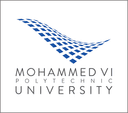Computational Mineralogy Postdoctoral Fellow
Join a top-tier research team unlocking solutions to the scarcity of essential materials for next-generation energy and information technologies. You will use state-of-the-art computational tools based on physics, chemistry and AI to investigate a variety of mineral resources including brines, clays, hardrocks, mine tailings, and e-waste for their potential as feedstocks for the synthesis batteries and computer chips. Your role will be to design processes for transforming resources into sustainable materials by modeling reaction pathways from first principles. The project will collaborate with a broad scientific team using state-of-the-art instrumentation at Berkeley Lab including autonomous platforms for mineral characterization, calorimetry, and processing. We utilize quantum sensing, scanning probe microscopy, X-ray and electron imaging, scattering or spectroscopy to create in-house minerals properties databases that you will use to construct computational reaction models from resource to recharge, from mine to magnet.
What You Will Do:
- Use and develop minerals and materials databases for computed and measured properties.
- Predict and control mineral reaction pathways using first-principles thermodynamics.
- Design and implement machine learning models for data collection, reduction, analysis, and visualization.
- Work creatively, independently, and productively.
- Work as a member of a multidisciplinary research team.
- Work collaboratively with laboratory technicians.
- Publish peer-reviewed journal articles and present work at scientific conferences.
- Contribute to progress reports and team deliverables.
- Supervise laboratory interns or students, if there is mutual interest.
What is Required:
- Ph.D. in Geology, mineralogy, earth science, chemistry, materials science, physics, computer science or relevant STEM field.
- Demonstrated ability to perform research that addresses fundamental science questions.
- Demonstrated experience with computational chemistry methods including density functional theory, molecular dynamics, and bond valence.
- Strong coding skills including object-oriented programming, software engineering practice (version control, unit testing, continuous integration). Preferred language of experience is Python.
- Demonstrated experience working with the Materials Project and pymatgen.
- Ability to work creatively, independently, and productively.
- Ability to work as a member of a large multidisciplinary research team.
- Excellent written and oral presentation skills.
- Record of timely publications.
Whoops! This job is not yet sponsored…
Or, view more options below
View full job details
See the complete job description, requirements, and application process
Express interest in this position
Let AcademicJobs.com know you're interested in Computational Mineralogy Postdoctoral Fellow
Get similar job alerts
Receive notifications when similar positions become available


